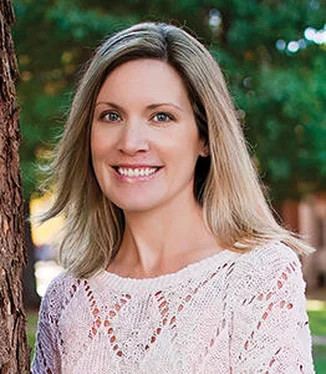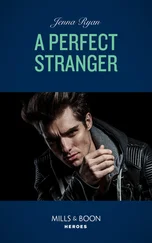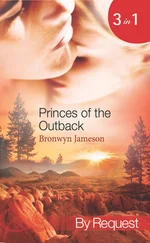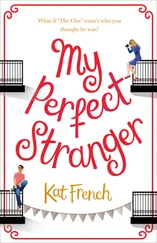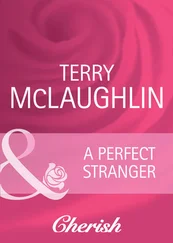Bringing him in to the station had been a Hail Mary, a hope to scare him into a confession, or that I would come forward to add to the case, with the threat now safely behind bars.
“You had to let him go, and you’re here to make me feel guilty, is that it?”
“I’m here because we had to let him go,” he said. “But I’m also here to tell you I’m going to have a few units swing by your place tonight. So if you see lights, it’s probably just them. Still, you should feel free to call my number if you see anything unusual.”
“You think I have reason to worry? That would be pretty dumb of him, don’t you think?”
“The court system is not exactly brimming over with people who’ve made good decisions,” he said.
The bell rang. “Thank you for letting me know,” I said.
“You can talk to me, Ms. Stevens.” His mannerisms reminded me vaguely of someone I knew – or maybe just a type of person – with the way he spoke and moved: contained, even-tempered, and self-assured. Someone who had been in the business long enough, had become accustomed to its ups and downs, and had learned to hold himself steady.
“Leah,” I said.
“Leah,” he said, and he tapped his forehead, like a gesture of a salute – as if we were on the same team.
I CHECKED MY PHONErepeatedly during class, and I listened for the gossip. But the students held their secrets closer today.
I faced the board, writing out an assignment that would hopefully keep them busy and quiet.
“Ms. Stevens.” I didn’t have to turn to know who was speaking. Could imagine her hand held in the air, back straight, fingers faintly waving. Izzy Marone.
“Yes,” I said, still facing the board.
“If we can’t feel safe at school, how can we be expected to concentrate?”
“You’re right, Izzy,” I said, turning around and brushing my hands on the sides of my pants. “This is relevant, and current, and important. So take out your journals, and write an opinion piece.” I walked toward her, leaned close, my hands on her desk. “Let those emotions guide you. Let’s shoot for some authenticity here.”
Her eyes went wide, but she held herself perfectly still. “Is this for a grade?” she asked.
I tapped her desk. “This is an exercise. A participation grade. Get to it.” This was what I had done the first week of school, when I felt myself sinking fast – just to hold their focus, just for some silence. Embarrassed that I had to bribe my own students to do the work. Promising free passes, free grades.
But this time was different. This time I wanted information.
By the end of the day, I hadn’t had a call from Emmy, but I did have a stack of seventy-five opinion pieces, all presumably about school safety, and the rumors, and Davis Cobb. This was how to start.
Truth and story – doesn’t matter which comes first, as long as you get where you need to be at the end.
As long as you end at the truth, all’s fair.
I took the turns too fast, my back tires fighting for traction.
Slow down, Leah.
I eased my foot off the gas, listened to the engine relax, watched the dial of the speedometer drop, tried to remind myself that nothing would be altered by my presence. Still, I was itching for home.
I had a sudden irrational sensation that it was no longer me chasing a story but the story chasing me instead.
I pulled into the driveway, dust rising in the rearview mirror, and I could almost taste it. Emmy’s car still wasn’t back. The house took on a new slant, settled deep into the trees: slightly sunken, the charm giving way to disrepair.
I did a check of the rooms, as I had the night before, looking for any sign of her. My sad sticky note still rested against the gnome. A pathetic plea, like the one you might make in a voicemail even after you know your relationship is over.
Emmy had decorated the place – a chipped vase on the counter, a red ceramic heart hung from a nail over the couch, a random assortment of glass, plastic, and pewter knickknacks positioned haphazardly on end tables, over the refrigerator, on the kitchen windowsill. They’d turn up out of nowhere, like they had when we’d lived together years earlier. Our house was littered with them, as our apartment had been back then. It was a harmless habit, she’d claimed, and I rarely called her on it. Rarely called it what it was: theft.
Tokens, she called them. Reminders of places she’d been or people she’d been with. Emmy’s version of a scrapbook. A salt shaker from a restaurant where she’d eaten, an ashtray from the apartment of some hookup (though neither of us smoked), a magnet from the bar where she used to waitress on weekends.
Once, at our old place, she’d brought home a watch. I could tell from the heft of it, from the glint of the face and the multiple ticking pieces, that this was worth more than the typical items she lifted. She’d hung it from a nail over the door the morning she returned from John Hickelman’s piece-of-shit apartment, where it acted as our own makeshift wall clock.
“I’m sure he didn’t pay for this himself,” she said when I called her on it. And then, “Oh, come on, he had mirrors on his ceiling, for Christ’s sake.”
And it was hard to argue with that. So John Hickelman’s watch became ours. A game, really, as she knew I was uncomfortable with keeping it but that we would. She hung it from our bathroom towel bar. I moved it to the fridge. She hid it in my sock drawer. On and on it went, something I’d find only once I’d stopped looking, the surprise catching me in a laugh each time. Until I left it under her pillow, like the tooth fairy, and never saw it again.
These were the types of things she’d boxed up before she left for the Peace Corps, sealing it all up with silver duct tape. She’d asked me to keep this single box for her, as if these were the only things worth remembering.
Eight years, and I never heard from her. That box had moved with me for three apartments, out of some misguided sense of duty to her. Or some hope that she would come back for it.
I HAD LONG BELIEVEDthat life was not linear but cyclical.
It was the way news stories worked, and history – that you ended where you began, confused and gasping for breath.
And so I was not completely surprised when, eight years later, in a bar off a side street in the Back Bay, I saw Emmy again when my life was set to veer completely off track, as it had only once before.
She did not look as she had always looked: Her hair was dyed even darker, and her body had thinned and hardened, and her shoulders were hunched a little forward, maybe against the chill at night, but maybe not. And yet there was something quintessentially Emmy that had me calling after her, completely sure. I can only explain it this way: that I knew her deeply, if not thoroughly; that a four-month relationship can supersede all the boyfriends, all the friendships, that came after and lasted longer; that our friendship was born from the one time I’d stepped off track, done something unexpected that did not follow the predicted steps of my life. And for that reason, it shone brighter, and so did she.
She didn’t turn around at first as she brushed by me on the way past the bar, until I called again – “Emmy” – realizing I couldn’t remember her last name – had I ever really known it?
She spun around, and in the yellow glow of the overhead lights, I saw that the pockets under her eyes were discolored. And her eyes had that look I knew too well – that she wanted to escape. She was casting glances over her shoulder as she called back, “Leah?”
I stepped closer, and her face broke into laughter. She hooked her arms around my neck, and I circled mine around her back, feeling all the differences between then and now.
Читать дальше
